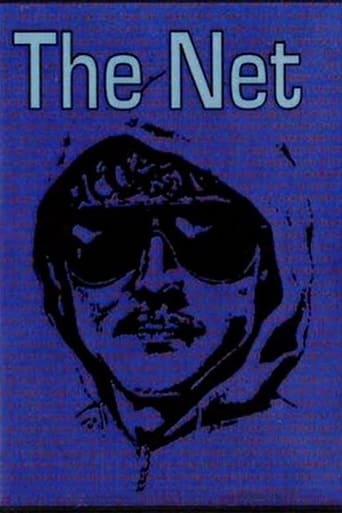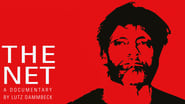Bill-276
Despite some lofty dialog and cherry-picked quotes by everyone from Norbert Wiener to Wittgenstein, this documentary is a train wreck of thesis, exploration and conclusion.Let me summarize the entire film for you here so you do not have to view it: In an attempt to understand the evolution of computing and it's future impact on humanity (a noble endeavor), the director takes such a disjointed path that the audience can only draw this conclusion: Rather than joining the "Digerati", computer scientists or other profound government-related technology projects like his contemporaries at Harvard and Berkeley during the 1960's, Ted Kaczynski "may have" developed his anti-technology views and perspectives after being subjected to psychologically stressful mind-control experiments while a student at Harvard.There you go.There is certainly a conversation around cybernetics that needs to be had by society, but as it's pointed out emphatically and eloquently multiple times by those who helped orchestrate "the system", killing people to have this debate takes away any legitimacy or credibility Kaczynski had. And the Unabomber is the primary source of counter-argument which the director depends. These repeated encounters destroy the director's agenda (whatever it actually was).You can fear technology as Kaczynski did or as the director is trying to make you, or you can view it the way Stephen Hawking does: Humans, limited by slow biological evolution, will not be able to compete with machine evolution, and would/(will) be superseded. Hawking believes machines are the natural evolution of humanity and likely our only way to get off the short life of our earth and solar systems, and navigate the universe.I don't know what I think, but I'd rather not live in fear if possible. And fear of technology, while completely excusable (Ed Snowden, et. al.) is not presented with any effect in this film.And I still don't know what LSD had to do with the film's premise!
Polaris_DiB
The term "post-human" refers to the postmodern status of the human being transcending beyond the boundaries of biology and genetics and into the cyborg reality of ultimate reliance on technology. That reliance is translated as more of a symbiotic relationship than that of an addiction or psychological dependency. Information technology is at the forefront of analysis into post-human critics and thinkers, as humanity has seemingly willingly jacked itself in to a hive construct with mass communications and productions of personal computers, cellphones, and other networking devices. Front and center, really, of all that is the Internet. Tied in to the Internet is its industrial-military beginnings. And where most of humanity seems to generally accept these new ways of living with only cursory glances as to its implications and consequences, for the most part there is still an undercurrent of unease running under and through the signals shot around our atmosphere. For some people, this unease is the source of a desperate need to look at these technologies and ask the question of what they are doing to us, instead of for us. This movie, The Net, is simply the best documentary on that vein I've yet seen.What this movie is essentially is Lutz Dammbeck dialoging with Ted Kaszynsky and his victims. Center to that is the relationship between technophobia and technophilia, the integrated relationship between that technology and contemporary history, cyberpunk mentality, and our new way of viewing ourselves as information carriers as opposed to psychobiological vassals. All of these concepts provide the bigger picture. The details are disturbing, but still open to interpretation. Dammbeck is not interested in placing a specific value into his documentary, but traveling around the nation and letting the values speak for themselves. He even has a woman narrate his role, kind of like Chris Marker in Sans Soleil. All along he keeps a written correspondence to Kascynsky, which makes for an interesting character study in and of itself.A good point is made within the movie that as technology changes, our relationships and perspectives of ourselves change with it. This is meant to detail the reason why the Internet has interdigitated itself into our lives, but it also should be understood to mean that these ideas might justifiably change. Who knows what the future holds for us, really? The issue at stake is, as always, do you use technology as a tool, or a weapon? --PolarisDiB
partnerfrance
The film was shown this weekend (30 April) in Paris in the presence of its director, Lutz Dammbeck, who stayed to take questions from the audience afterword's.The film's premise is frightening enough -- the internet was originally developed through a sort of unholy alliance between (i) scientists bent on "remodelling" post-WW II man in order to avoid a repeat of war by isolating (through various mind-control experiments) and then removing the genesis of authoritarian personalities, (ii) the American intelligence community bent on winning the Cold War, and (iii) (somewhat improbably) a group of "hippie" non-conformists and artists who shared the vision of the aforementioned scientists. Dammbeck develops the premise by a series of interviews with various members of each group whom he considers as having been the "architechts" of the internet.Against this alliance stands Dammbeck's unpalatable anti-hero, the Unabomber (whom Dammbeck certainly does not admire, yet has some sympathy with -- Dammbeck reminds us that Kaczynski was one of the students who actually underwent the mind-control experiments in question, which may have triggered the unhinging of his mind).The problem with the film is that in each of the interviews, after having drawn out his subject into explaining his role in the development of the internet, Dammbeck then asks the interviewee whether such development was not subject to legitimate criticism and then provides as an example...the criticisms made by Kaczynski in his Unabomber manifesto! Of course, this simply triggers an emotional response from each of the interviewees that Kaczynski was either a madman, a dangerous criminal or both, so that the question of whether there is not some truth to the argument that such development was dangerous is never answered. Dammbeck never first alludes in his interviews to other critics of technological positivism who did not feel it necessary to make their criticisms by means of letter bombs.This "technique" reaches its paroxysm when Dammbeck interviews one of the Unabomber's victims, who lost an eye and a hand to one of the letter bombs, and asks him whether he does not feel that Kaczynski had some worthwhile criticisms to make. Needless to say, the interviewee responds with an entirely understandable emotional response which the audience is somehow supposed to feel constitutes a refusal to consider the merits of the question.Dammbeck might have been better off asking his of his interviewees a series of less "loaded" questions first before springing on them "So, do you think that this fellow who killed three people and wounded a dozen others (including in one case the actual interviewee!) had something worthwhile to say?" It is too bad that this technique takes the edge off what is a very troubling theory developed in the film. Still, it is a film worth seeing, particularly as it becomes clear by the end of the film that Dammbeck has in fact been keeping up a running correspondence with Kaczynski and has a good idea of what makes him tick.
Moritz Muehlenhoff
"Das Netz" seemed like an interesting subject matter in the first glance, but the movie is fundamentally flawed by the fact that the author has no profound knowledge about the topic. He's giving obscure statements about the internet being "an agglomeration of machines with indefinite size and power" and his not even partial knowledge about mathematics (and especially Gödel's theories) are hilarious. The scenes in which the director is drawing the "big picture" are completely pointless and it's extremely rude to confront a victim of Kaczynsnki (who lost an arm in a bombing) with the statement that he'd been a victim of a legitimate fight against the "system".




